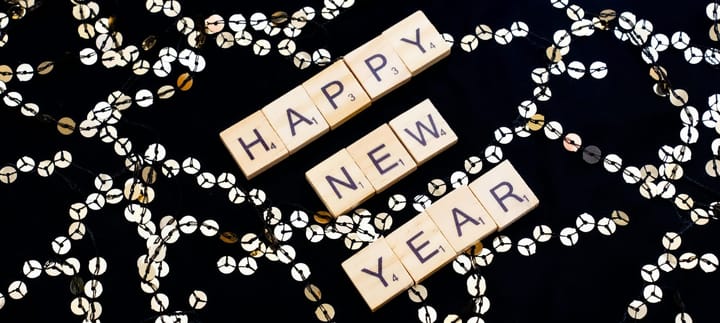Four Jealousy Resources + A Bonus Opinion
Four of my favorite jealousy resources and one extra opinion.

Jealousy has captured my attention. I have felt it intensely. I have become obsessed with researching it. And I have witnessed others experience it and either thrive or combust.
In my pursuit of learning about jealousy, I have experienced both good and bad resources, and I hope to save you some time by listing my recommendations. While creating this list, I wanted to keep it short and include a few different modalities to engage in the information. What is listed is a few books and links to the author's websites for more interrogation, a specific podcast that can lead you down a rabbit hole of listening (and it also might be familiar), and a video that can also be read through transcription if you prefer.
These are resources I have both used myself and provided to my clients. They are treasure troves of information that help not only with understanding jealousy, but with navigating the entire scope of the emotional experience and how to express that scope.
Without further ado, here are four resources and one (humble) opinion:
- The Jealousy Workbook by Kathy Labriola*
The Jealousy Workbook: Exercises and Insights for Managing Open Relationships by Kathy Labriola is a book I recommend to everyone who would like to navigate feelings of jealousy. The book begins with an overview of understanding jealousy and then explores interventions for both individuals and their partners.
The Jealousy Workbook requires that you take the time to self reflect and do the exercises. If you simply read the book, you will not gain key insights into your behavior and how you might change that behavior. There are activities that range from identifying your relationship role models to examining core beliefs and helping a partner who is experiencing jealousy. At the end of the book, there is also a thorough list of additional books and references that are helpful for further reading.
I particularly appreciate The Jealousy Workbook because it goes beyond simply learning about jealousy - many people use ongoing learning as a distraction from doing the work that would create tangible change. Instead, it provides context and then exercises to see how the concepts and ideas are acted out in real life. It has the potential to help people change their relationship with jealousy.
Kathy Labriola is a counselor and nurse who has a wealth of contributions to the polyamorous community and beyond. She offers counseling sessions and has many resources available on her website if you are interested in more.
2. Deconstructing Jealousy by Multiamory Podcast
The Deconstructing Jealousy episode of the Multiamory Podcast is a gem. While the hosts provide a general overview of jealousy in polyamory, the real meat of the show is in the discussion regarding jealousy triggers, including fear, competition/comparison, and FOMO, to name a few.
For those who are new to navigating jealousy in the context of ethical nonmonogamy, identifying triggers can often be challenging because the emotion itself is so overwhelming. The triggers they outline in the podcast can be helpful in understanding patterns that create an environment for jealousy, and establish self awareness around the experiences.
The Multiamory podcast is one resource available through the Multiamory brand - they also offer books, coaching, and events. The creators - Jase, Emily, and Dedecker - have been making podcasts since 2014, and they have a wealth of information available in their podcasts and online.
3. The Skills to have Difficult Conversations by Esther Perel (video)
Here is where I both go a little rogue but am also wildly predictable. The Skills to have Difficult Conversations is not specifically a jealousy resource (this is the rogue part). Instead, it is a discussion with a few activities that encourages courageous communication, which is a basic skill anyone needs in relationships. Especially relationships that might be navigating jealousy or other hard emotional experiences.
One of the primary reasons I recommend this video is an activity about culture. Around 13 minutes into the video, Esther guides listeners through an activity wherein viewers reflect on the world around them. Culture influences everything, and working to understand how culture not only influences emotions, but also how we engage in conversation, is SO IMPORTANT. The simple yet effective activity is a solid place to start this work.
When discussing jealousy, we must consider the influence of culture, as we are seeped in mononormativity which gives VERY specific messages about how we should see and experience jealousy in romantic relationships. We will be talking more about mononormativity soon, so if you are eager to learn more here, shoot me an email and I will hustle up.
Now, The Skills to have Difficult Conversations is not specifically about jealousy, but it is wildly predictable because (1) It is about communication, duh; and (2) I am absolutely a fan girl of Esther Perel. I mean, "The quality of our relationships determines the quality of our lives." YES. YES, I AGREE MA'AM.
So, put on your "curious about jealousy" hat, and go give this video a watch. Maybe you will become an Esther fan too. Even if you don't, I hope you are able to see how the structure (culture) influences the land (the experience of emotions), and you leave with a tool or two to open conversations about them both.
4. Permission to Feel by Marc Brackett, PhD*
Permission to Feel: The Power of Emotional Intelligence to Achieve Well-Being and Success by Marc Brackett, PhD is one of the best resources I have found to help people understand and process all of their emotions. In this book, Dr. Brackett introduces the RULER system (recognizing, understanding, labeling, expressing and regulating emotions), which helps both children and adults understand and engage with their emotions.
While the book is highly geared toward navigating emotions in order to achieve academic and career success, the takeaways are much broader than achievement-based goals. Emotion skills are the foundation of navigating ANY emotional experience, including jealousy.
Dr. Brackett is a scholar who I respect, and particularly appreciate how approachable he has made his research. If the book isn't for you, search YouTube for the RULER method, which will provide a solid overview of the information included in the book.
- BONUS: Seek Out a Therapist!
No matter where you are in your relationship with jealousy, I highly recommend seeking out a therapist to provide support and assistance. I know this is probably not the kind of resource you were expecting...that is why it is a bonus!
I love education - I am sure that is no surprise. However, sometimes we can use education as a distraction or a means by which to continue seeking instead of doing the internal work. Therapists (and counselors or coaches!) are people who can help hold you accountable and also provide a different lens through which to see your emotional experiences and expressions.
While resources like books, videos, and podcasts are a wealth of information - it is important to know when to stop consuming and start processing. Stick around, and there will be more on how to apply and integrate everything you are interested in learning to increase the quality of your romantic relationships (and all of your relationships, really).
*These are affiliate links where I will earn a little bit of dough if you click through and buy. Thank you!


